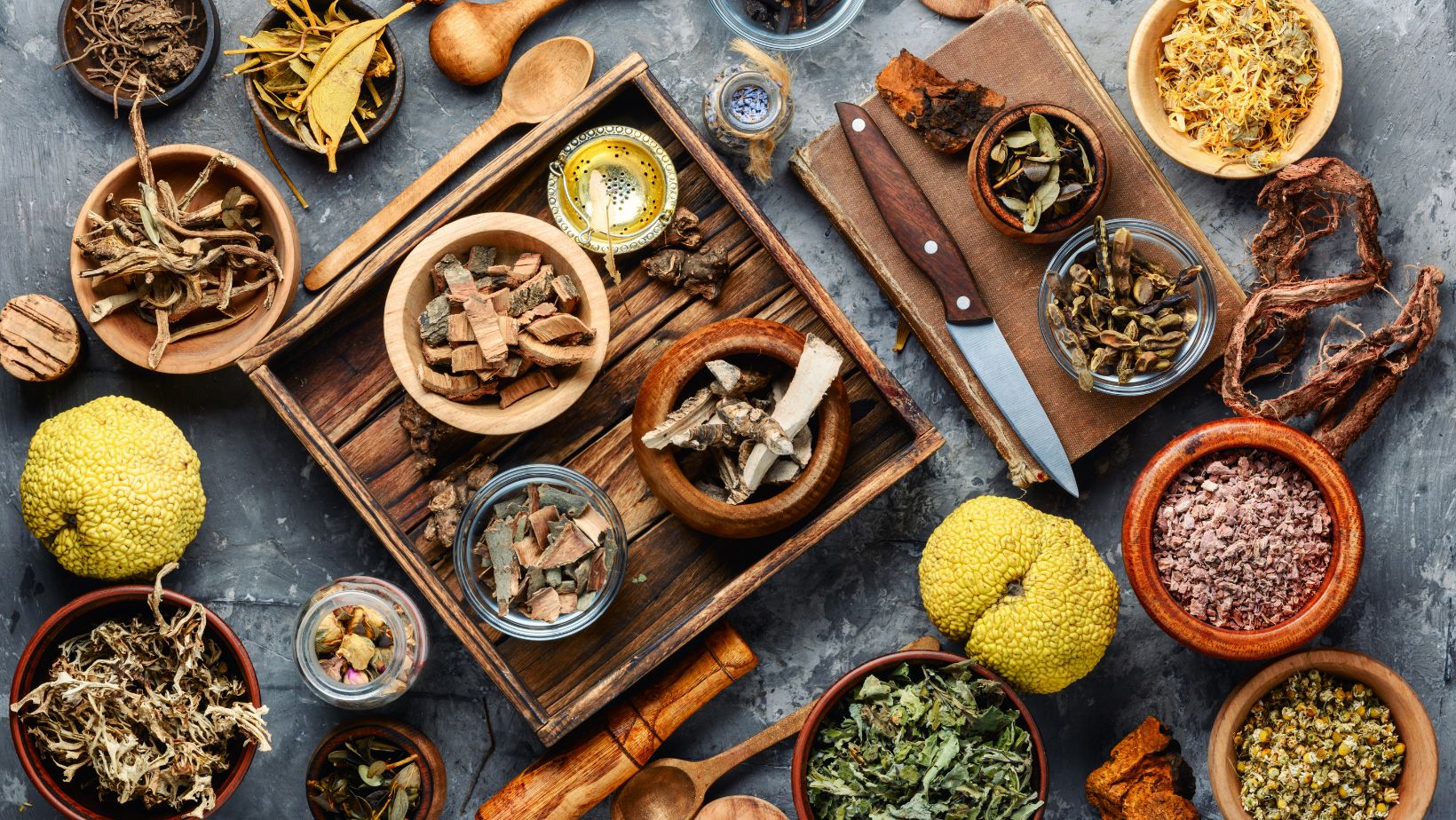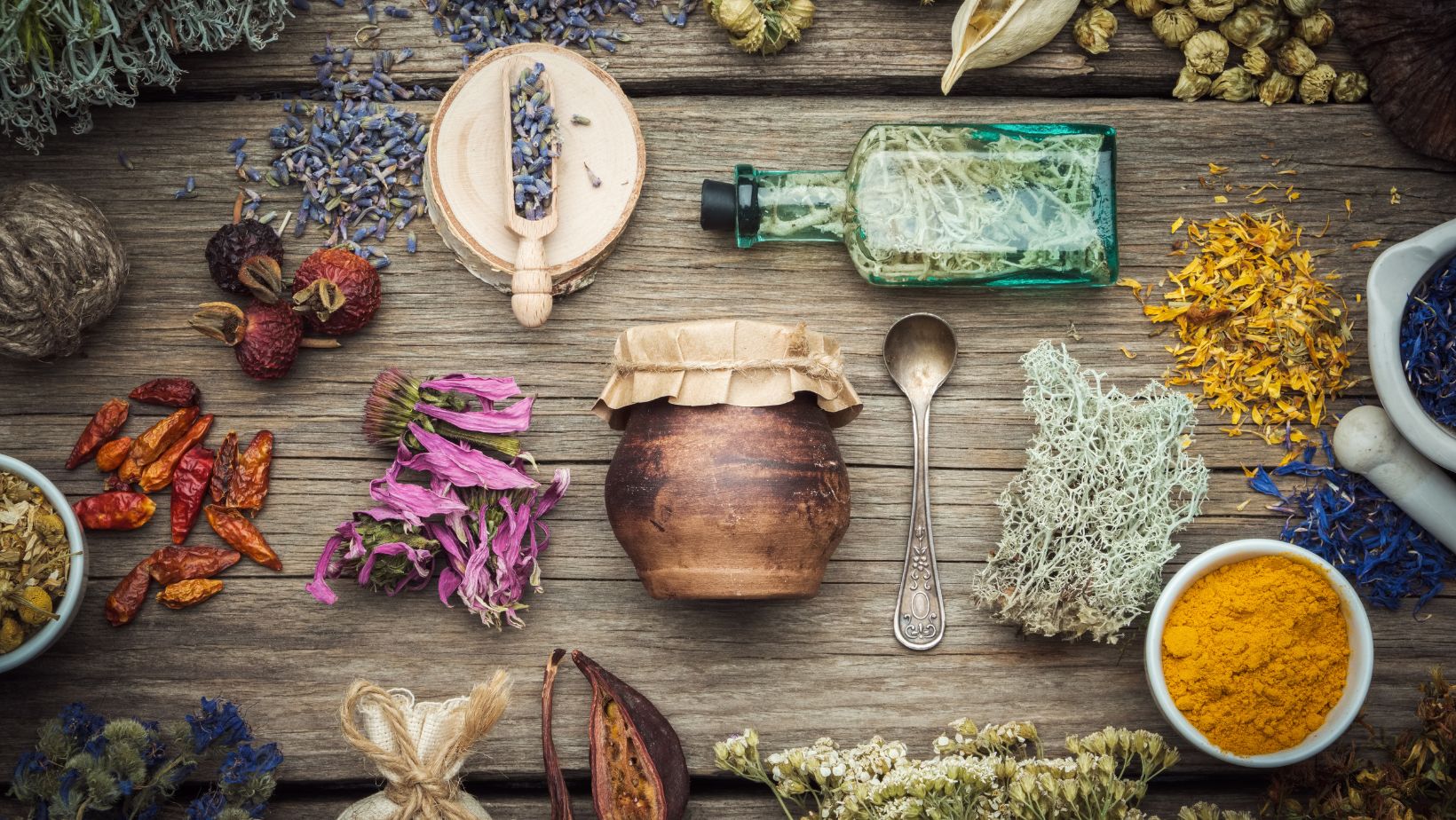Wicca, a modern pagan religion that draws upon ancient traditions, strongly emphasizes the natural world. This spiritual path is rich with rituals and practices that honor the earth and its elements without giving away it’s importance. Among these, the use of herbal remedies holds a significant place. Herbs are not only used for their medicinal properties but also for their spiritual and magical attributes.
The role of herbal remedies in Wiccan traditions is profound and multifaceted, deeply intertwined with the beliefs and practices of this nature-centric faith. For those new to Wicca, resources like the Wicca Academy offer valuable insights into these practices.
The Historical Roots of Herbalism in Wicca
Wicca is rooted in herbalism, or the utilization of plants for healing and to enhance religious experiences, something that has already been mentioned is thousands of years older than Wicca. Plants have been used for their healing properties since the earliest civilizations, such as Egyptians, Greeks, and the Celts. Some of these early herbal applications of Witches have been adapted to the Wiccan religion due to its synthesizing nature.
In Wicca, herbs are employed in their natural state, either dried, fresh, or in the form of essential oils; they are utilized in spells, rituals, and other aspects of Wiccans’ daily lives. Each herb’s actual and perceived properties also include specific energies and correspondences that may be used for recovery, shielding, attraction, and other purposes. This profound relationship between herbalism and Wicca underlines the natural world’s perennial appeal in sacred practices.
Witchcraft, Healing & Herbology
Wiccans believe that herbs have power and energy, and their essence must be harnessed correctly and with respect. This dual utilization of herbs—objects of magical power and curative substances—is the core of Wiccan rituals.
For example, lavender is considered an effective calming and protective herb. It can be placed under a pillow to help with sleep or burned like incense to neutralize a room with bad vibes. Similarly, rosemary is used to purify and protect and, in ceremonies, to chase out evil spirits or to make a place holy.

Another concern among Wiccans is using herbs as a source of medicine, as they treat various illnesses naturally. Chamomile, which has been used to treat ailments such as insomnia and anxiety, should be taken in moderation since it has mild effects. Peppermint is a stimulating factor that helps prevent and cure gastrointestinal tract diseases and headaches. It should also be noted that herbalism as a part of Wicca is not only applied to the physical aspect of being but also emotional and spiritual. In this way, Wiccans intend to create harmony and balance where the magical and medicinal qualities of the herbs are combined.
Crafting Herbal Remedies in Wiccan Rituals
In Wiccan traditions, herbal preparation is considered a magical act, as are all actions associated with Wicca, and the plants are treated with reverence. It is often characterized by choosing and collecting plants and herbs in a particular place. The Wiccan faith supports the responsible gathering of plants and other natural materials, and they always thank the earth for the gifts they are taking and do not take excess of what they require. The extraction is done in a manner that is considerate of the plant and in tune with the Wiccan mindset of sustainability.
Preparation may vary depending on the part used, the intended use, or the application of the herb after it has been harvested. Herbs may be dried and stored for future use in teas, tinctures, or as offerings by burning them. Perhaps the herbs are in the raw form, which could be used directly in rituals, water for bathing, or charms. Aromatherapy, anointing, and spellwork: Essential oils are gained from plants and constitute an herbal remedy.

Preparing a concoction of herbs requires specific procedures and enchantments to invoke the required energy into the herbs. This might include using words, voice, drumming, or particular objects such as candles or crystals. According to Wiccans, it is possible to charge herbs with specific intentions that would otherwise not be possible, enhancing the process and focusing the inherent energy in a particular direction.
Integrating Herbalism into Daily Life
In fact, many Wiccans consider using concoctions to supplement rites and charms in daily life. This integration is by the Wiccan practice of seeing the mundane as holy and manifesting divinity in the world.
Chai and tisanes are brewed daily with plants and herbs for health and wellness. Herbs are often burned in the form of incense to clear a room’s energy or to create the right atmosphere for introspection. This approach to cooking with herbs can be considered a magical practice, as even the preparation of an ordinary meal is a ritual, an act of prayer.
This is why Wiccans try to use herbalism as much as possible in their daily lives to keep the link between them and the natural world and its forces alive at all times. Such a continuous application of herb magic enhances the understanding of the earth and its blessings, which encourages Wiccans to respect the earth and its resources, as the Wiccan ethic holds.
Conclusion
The use of herbs in Wiccan traditions is one of the most appealing aspects, and one can see how prehistoric practices can be integrated into the current systems of spirituality. Today, Wiccans find the relationship between people and herbs essential in worshipping their deities, invoking their ancestors, and as a part of rituals. In Wicca, herbalism is not only about employing plants to cure but also about learning how to interact with the Earth most positively.
With an increased desire for a more earth-based and organic form of spirituality, Wiccan herbalism provides valuable insight. For those who want to delve deeper into this path, the Wicca Academy offers many informative materials to teach new and aspiring Wiccans to embrace the world of magical herbs.
